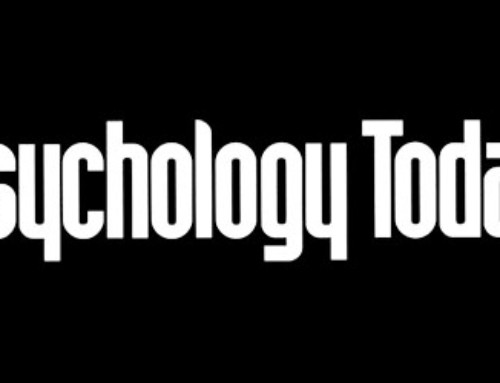From the beginning of a career spanning more than 40 years, Dave Sabey has sought out people with a fresh perspective, an inspired vision and a relentless sense of purpose. Among his earliest developments were building Boeing Electronics clean rooms, constructing an early ADP data center, building and owning one of McCaw Cellular’s first switches, developing facilities for Exodus Communications, a provider of the world’s first internet colocation services — even Starbucks’ first external roasting plant– all were breaking new ground in industries of world-wide importance. Today, that trend continues both through real estate development and investment with a particular focus on high performance data centers, healthcare & life science research and communications.
From IT efficiencies and technology platforms dedicated to solving some of the hardest problems facing health care and life science, Dave is passionate about promoting ideas that positively change the world. Dave is also founder of the Seattle Science Foundation which was established to foster the collaboration of medical scientists, practitioners, and engineers through high bandwidth transmissions while sharing some of the world’s most sophisticated skill sets. We spoke with Dave about technology, training your subconscious and snapping yourself out of a really bad mood
There has been a long standing vocal opposition that feels that technology is an unnatural element of an otherwise natural order. Hollywood seems to make millions on movies that forewarn the dangers of technology run amok.
It’s built on that fear of emerging technology. Yet we always find a way to move forward. There are always new, intuitive ways to interact through technology; in the near future it will be with biotech, genetics, or perfecting a multi-parallelism-network environment. And the technology industry itself is complex and rife with what author Nassim Taleb refers to as “black swan” level momentum changes, which add much of the anxiety associated with change, even among those inside the industry.
Yet the act of communication between one another is nothing new. Facebook and social communications are simply modern versions of smoke signals. The transfer of knowledge between those separated by distance– it’s just far more developed now. Social media feels good to use, being social feels good, it’s directly aligned with our biological systems. We like to be social. We all want to be networked together, and we don’t want to live with a hierarchy; we prefer level playing fields. Technology not only makes the world better for more of us, it also functions as an extension of our fundamental humanity, much of which is about connection and communication.
And yet, we’re afraid of what we don’t understand. Ironically, that, too, is a natural extension of the human condition.
They say those who do not learn from history are doomed to repeat it. At the same time, we tend to view the past with rose colored lenses. Does that interfere with the learning process? Does it help to be a little naive moving forward?
We’re good at remembering the good stuff while forgetting all of the bad stuff. That’s actually a good thing. If all we remembered was the bad stuff, we’d suffocate in self-inflicted trauma. In order to adapt to an ever changing technological world, we need to be more flexible and a lot more optimistic. Civilization as a whole needs to build up trust again.
It’s funny, even the highly-valuable tools like the scientific method can be an extremely negative at times. There’s a lot of energy spent in science trying to disprove theories in order to validate them, which can be a needlessly discouraging process. The entrepreneurial mind can be more positive, it’s about solving problems in the most effective way possible. Wouldn’t it be something if we could improve on our methods of critical thinking? Could we merge the scientific process and the entrepreneurial mindset and create a more complex yet positive way to solve problems? I like to think we could.
Speaking of going against the typical mindset, I’ve heard you say technology is best when it is used to avoid confrontations.
Technology allows us to communicate and meet life objectives with the least amount of friction. We’ll soon live in a world that is essentially customized, where each of us can find what we need with little effort. And that will save on wasted delivery resources and other transactions costs overall. It’s the kind of world that’s streamlined for everyone. Overall, things get better. The more we’re all operating on a level playing field, communicating directly with one another, the better life is. It’s hard to argue with that.
Example of a good thing that technology has accomplished. My dog, Kasey, developed Osteosarcoma–a very aggressive form of bone cancer, at just two years old. The vet suggested they needed to amputate Kasey’s left rear leg at the abdomen, and that she would need 2 months of chemo therapy. After all that, the vet told us that she had at best less than a year to live. Through research, we found Dr. Nicola Mason at the University of Pennsylvania. She has a clinical trial underway where she has taken genetically modified listeria bacteria, the bacteria that causes food poisoning, and added a protein to it called HER/2nue. HER/2nue is a critical component of the signaling pathway that the cancer uses to invade Kasey’s cells and propagate her cancer. The modified listeria is then injected into Kasey’s bloodstream to sort of educate her immune system. Our immune systems are already programmed to aggressively attack the listeria bacteria and when it sees the protein HER/2nue attached, it kills it, too. Without this protein, Kasey’s cancer has no ability to grow in her body. There are seventeen dogs in this study and all of them, including Kasey, are cancer free, some of them after over 750 days in this trial. We’re watching this very closely but are cautiously optimistic that this immune response will be permanent. Imagine if the same technology can be used to destroy similar cancer in humans.
In short, the sooner we can adopt new technological tools the better it will be for all of us. Nothing has ever improved human life like advances in technology.




